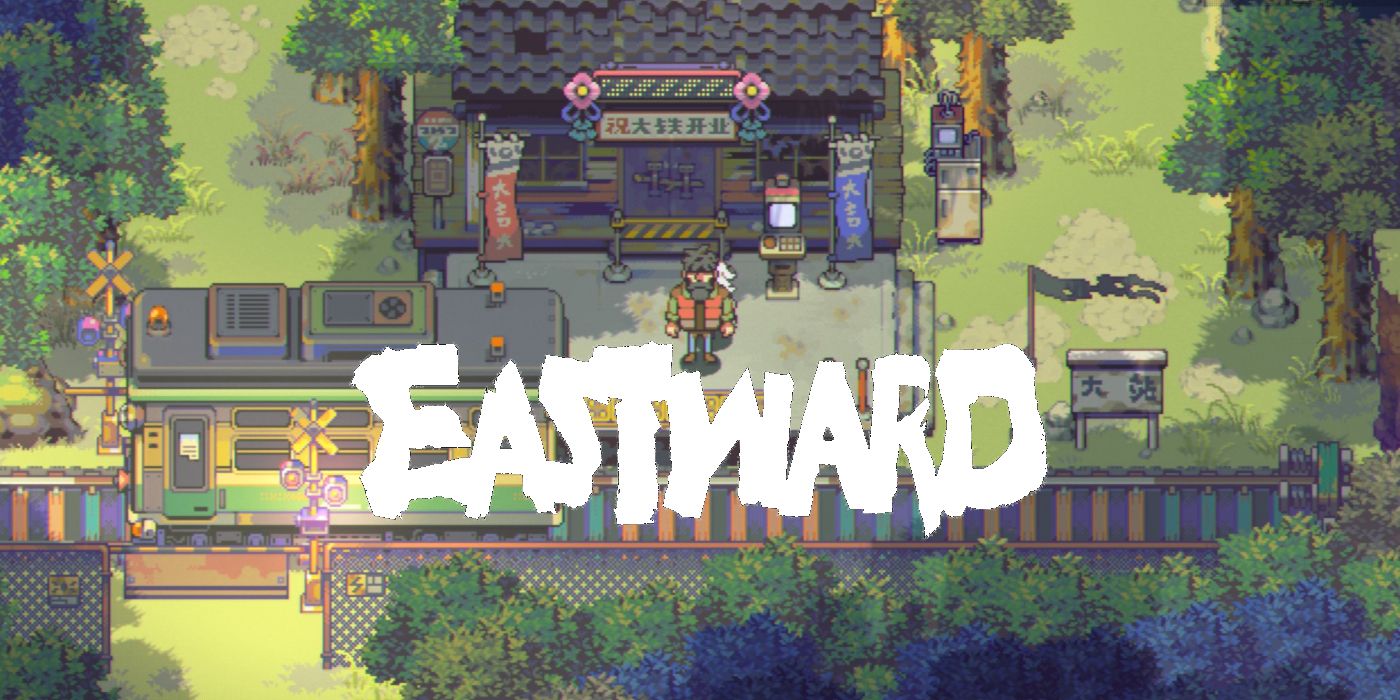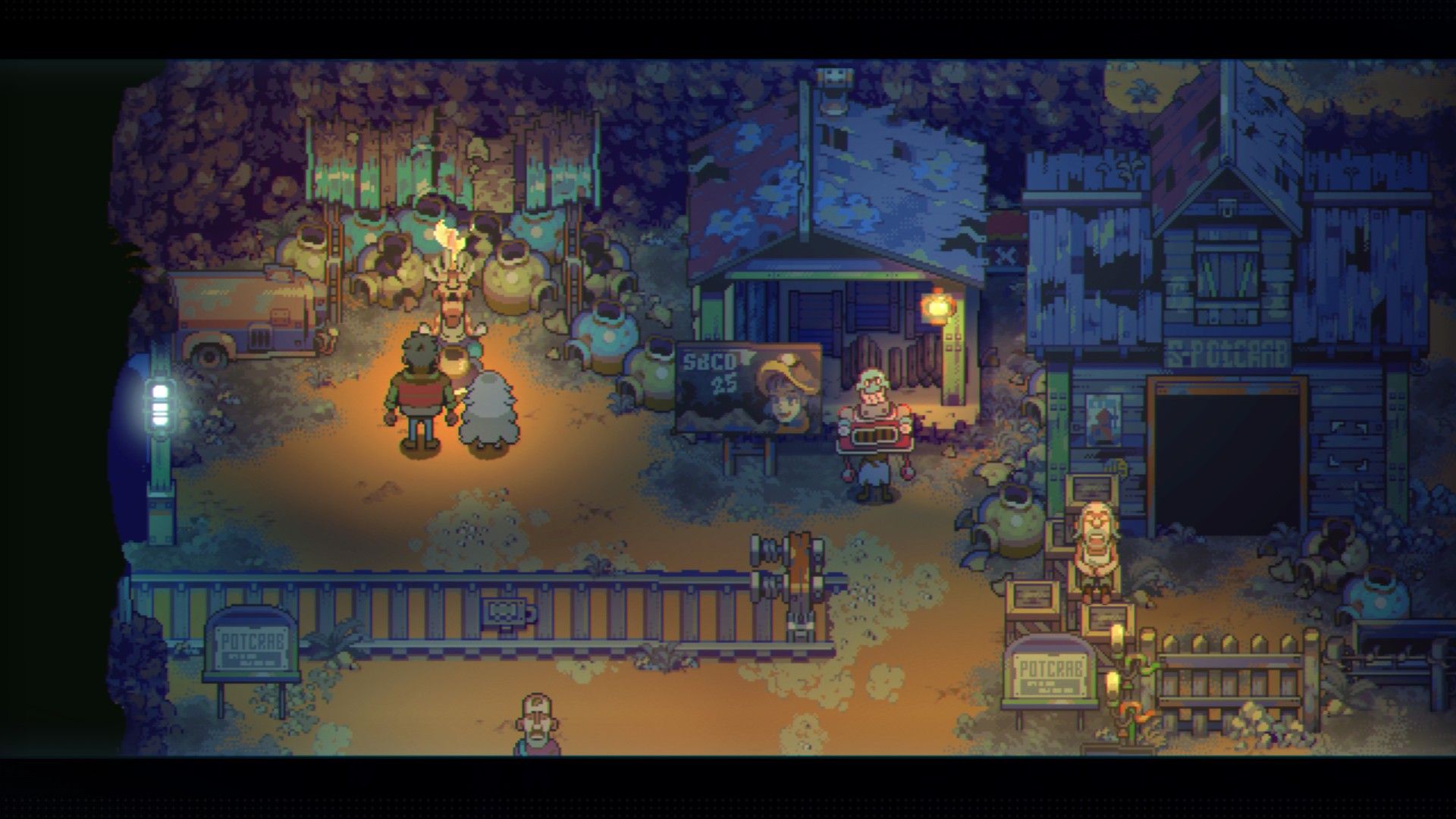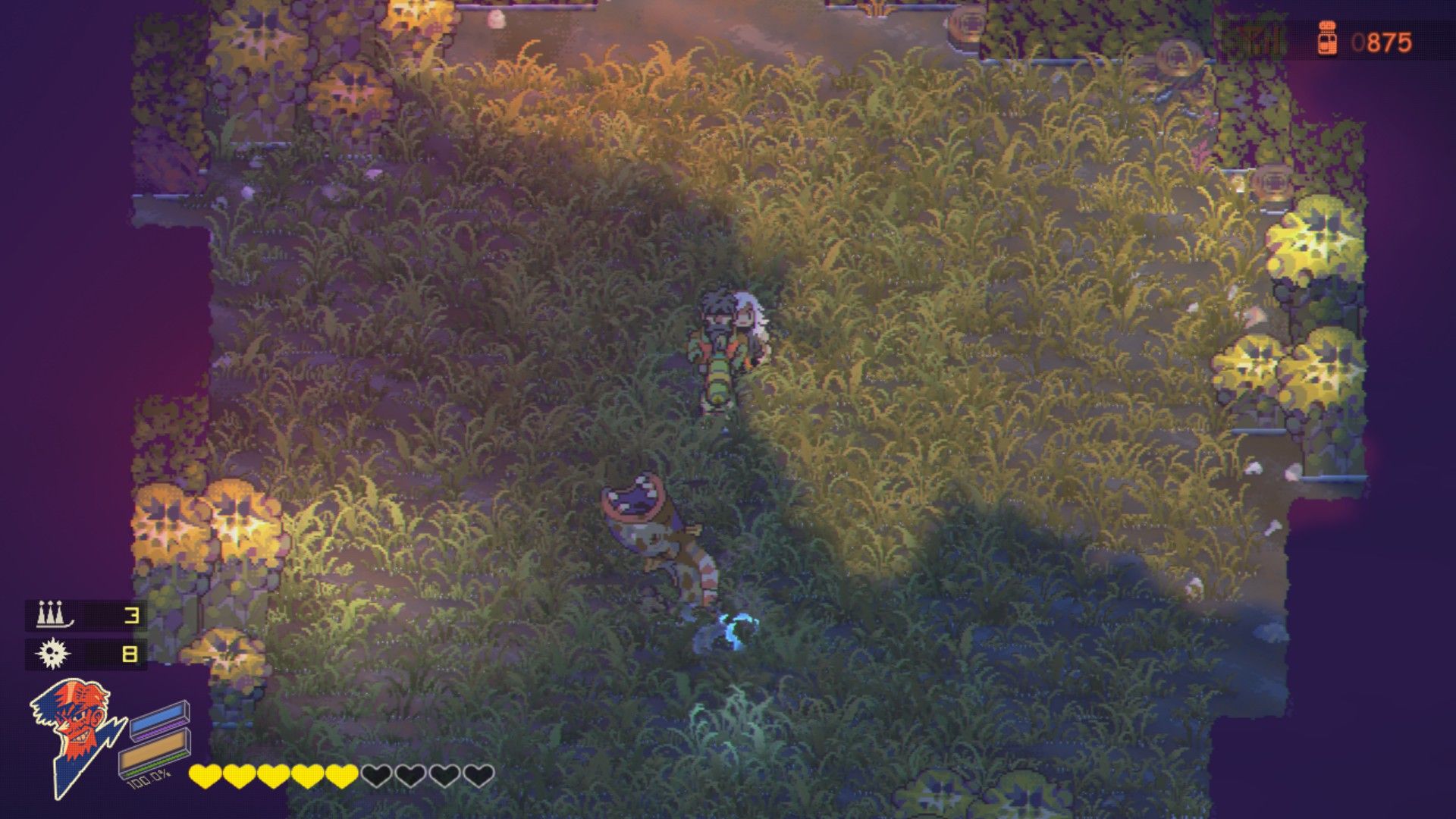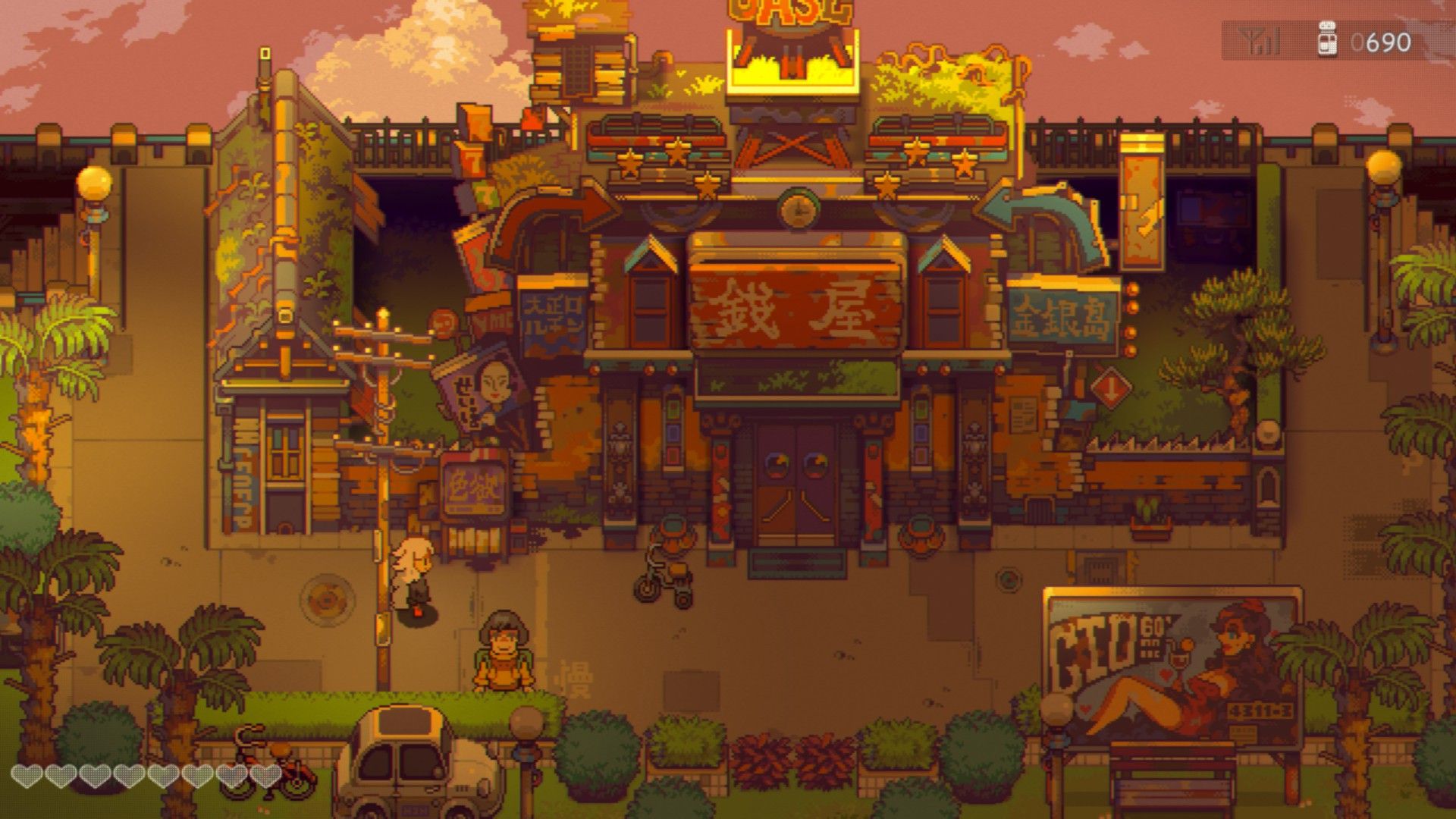In just a few days, JRPG fans will want to check out the launch of Eastward, a meticulously constructed puzzle-action RPG seemingly inspired most by the classic EarthBound/Mother series. Developed by Pixpil and published by Chucklefish, Eastward is by all means a phenomenal debut deserving of attention.
At the center of Eastward are Sam and John; a small girl and her thoughtfully silent, shaggy-haired adoptive parent. They live in the subterranean city of Potcrock Isle, working in the mines by day and cooking modest meals at night in a converted bus home within a scrabbly trailer park. While Sam is perpetually full of light and enthusiastically welcomes all comers, John is mute and a little more reserved, hiding some weighty darkness, but clearly adores her. The duo’s alliance is central to the narrative and works wonderfully, with Sam’s generosity and moxie winning over most any strangers they come across in a manner convincing to the player as well.
There’s more to the world than the underground simple life, and Sam and John soon head Eastward in a memorable title sequence. Before even leaving the tutorial-laden Potcrock Isle, though, there’s plenty to do and see. Eastward is always generous with its range of NPCs, and each area feels stuffed to the brim with compelling weirdos, and the animated flamboyance and personality granted by their fluid gestures infuses main and minor characters with an infectious liveliness. It’s a roster overflowing with curious robots, timid flakes, overly emotional artists, ramshackle heroes, scam artists, mysterious interlopers, and admirable rascals.
Their dialogue is further helped along by Eastward’s sharp script, which is refreshingly modern, and quite clever and well-observed on the whole. The game's simpler conflicts and side quests soon yield to the bigger world-ending stuff, as is the recognizable coin of the JRPG realm, but it never ceases to stake its claim on intimately personal narrative motivations. Sure, most of it contains a jokey air, but there’s also chilly cynicism, romance, and impoverished ennui.
The action gameplay even has a nice dynamic quality to it, with both John and Sam central and eventually controllable. Rambling through Eastward’s equivalent of dungeons, John uses his trusty frying pan and a few other gadgets to brawl with the game’s mutated creatures while Sam employs a series of magical powers which accumulate as the adventure progresses. Some fights are as simple as quickly swapping between the two, while others require them to separate, especially some off-the-beaten path loot puzzles. None of these puzzles are too cerebral or time-consuming to figure out and there aren’t a slew of items to equip and modify, but the combat gets a little more interesting and threatening farther on into the game.
That being said, the combat and the puzzles are secondary to the story, and Eastward is better for it. It's not perfect combat by any means, but as a story-first title, Eastward delivers where it matters most and accompanies that sublime narrative with solid-to-great mechanics.
A cooking system fresh out of The Legend of Zelda: Breath of the Wild feels a little unnecessary at first, but filling a backpack with cooked meals can help the pair brute force through some bosses and dangerous territory. Eventually cooking grows into a charming diversion that also figures into the plot, since John is its central chef. There are a few surprise activities and gameplay twists which also manifest, and it’s impressive just how much Eastward wants to show off, whether it’s a boss ambush, a reflex-based minigame, or a touching tale. Some represent activities which could be missed by someone rushing through the game as fast as possible (such as its charming lo-fi game-within-a-game, Earth Born) but it’s hard to imagine anyone would try.
Match all of the above with a mesmerizing soundtrack of hummable motifs, from cheerily playful ditties to dramatic dirges, and everything in between, and Eastward distinguishes itself handily within its heavily populated genre. While it's not without its shortcomings - in particular, a bit less variety in combat and puzzles than the genre often typifies - where it shines, it does so brightly. For RPG fans, Eastward is the real deal, and it’s an unmissable and impressive feat of indie design that deserves plenty of recognition amongst a sea of bigger releases in 2021.
Eastward releases on September 16 for PC and Mac through Steam, as well as Nintendo Switch. A digital PC code was provided to Screen Rant for the purpose of this review.




